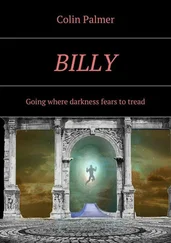E. Forster - Where Angels Fear to Tread
Здесь есть возможность читать онлайн «E. Forster - Where Angels Fear to Tread» весь текст электронной книги совершенно бесплатно (целиком полную версию без сокращений). В некоторых случаях можно слушать аудио, скачать через торрент в формате fb2 и присутствует краткое содержание. Жанр: Классическая проза, на английском языке. Описание произведения, (предисловие) а так же отзывы посетителей доступны на портале библиотеки ЛибКат.
- Название:Where Angels Fear to Tread
- Автор:
- Жанр:
- Год:неизвестен
- ISBN:нет данных
- Рейтинг книги:5 / 5. Голосов: 1
-
Избранное:Добавить в избранное
- Отзывы:
-
Ваша оценка:
- 100
- 1
- 2
- 3
- 4
- 5
Where Angels Fear to Tread: краткое содержание, описание и аннотация
Предлагаем к чтению аннотацию, описание, краткое содержание или предисловие (зависит от того, что написал сам автор книги «Where Angels Fear to Tread»). Если вы не нашли необходимую информацию о книге — напишите в комментариях, мы постараемся отыскать её.
Where Angels Fear to Tread — читать онлайн бесплатно полную книгу (весь текст) целиком
Ниже представлен текст книги, разбитый по страницам. Система сохранения места последней прочитанной страницы, позволяет с удобством читать онлайн бесплатно книгу «Where Angels Fear to Tread», без необходимости каждый раз заново искать на чём Вы остановились. Поставьте закладку, и сможете в любой момент перейти на страницу, на которой закончили чтение.
Интервал:
Закладка:
“And he never mentioned the baby once,” Miss Abbott repeated. But she had returned to the window, and again her finger pursued the delicate curves. He watched her in silence, and was more attracted to her than he had ever been before. She really was the strangest mixture.
“The view from the Rocca—wasn't it fine?”
“What isn't fine here?” she answered gently, and then added, “I wish I was Harriet,” throwing an extraordinary meaning into the words.
“Because Harriet—?”
She would not go further, but he believed that she had paid homage to the complexity of life. For her, at all events, the expedition was neither easy nor jolly. Beauty, evil, charm, vulgarity, mystery—she also acknowledged this tangle, in spite of herself. And her voice thrilled him when she broke silence with “Mr. Herriton—come here—look at this!”
She removed a pile of plates from the Gothic window, and they leant out of it. Close opposite, wedged between mean houses, there rose up one of the great towers. It is your tower: you stretch a barricade between it and the hotel, and the traffic is blocked in a moment. Farther up, where the street empties out by the church, your connections, the Merli and the Capocchi, do likewise. They command the Piazza, you the Siena gate. No one can move in either but he shall be instantly slain, either by bows or by crossbows, or by Greek fire. Beware, however, of the back bedroom windows. For they are menaced by the tower of the Aldobrandeschi, and before now arrows have stuck quivering over the washstand. Guard these windows well, lest there be a repetition of the events of February 1338, when the hotel was surprised from the rear, and your dearest friend—you could just make out that it was he—was thrown at you over the stairs.
“It reaches up to heaven,” said Philip, “and down to the other place.” The summit of the tower was radiant in the sun, while its base was in shadow and pasted over with advertisements. “Is it to be a symbol of the town?”
She gave no hint that she understood him. But they remained together at the window because it was a little cooler and so pleasant. Philip found a certain grace and lightness in his companion which he had never noticed in England. She was appallingly narrow, but her consciousness of wider things gave to her narrowness a pathetic charm. He did not suspect that he was more graceful too. For our vanity is such that we hold our own characters immutable, and we are slow to acknowledge that they have changed, even for the better.
Citizens came out for a little stroll before dinner. Some of them stood and gazed at the advertisements on the tower.
“Surely that isn't an opera-bill?” said Miss Abbott.
Philip put on his pince-nez. “ 'Lucia di Lammermoor. By the Master Donizetti. Unique representation. This evening.'
“But is there an opera? Right up here?”
“Why, yes. These people know how to live. They would sooner have a thing bad than not have it at all. That is why they have got to have so much that is good. However bad the performance is tonight, it will be alive. Italians don't love music silently, like the beastly Germans. The audience takes its share—sometimes more.”
“Can't we go?”
He turned on her, but not unkindly. “But we're here to rescue a child!”
He cursed himself for the remark. All the pleasure and the light went out of her face, and she became again Miss Abbott of Sawston—good, oh, most undoubtedly good, but most appallingly dull. Dull and remorseful: it is a deadly combination, and he strove against it in vain till he was interrupted by the opening of the dining-room door.
They started as guiltily as if they had been flirting. Their interview had taken such an unexpected course. Anger, cynicism, stubborn morality—all had ended in a feeling of good-will towards each other and towards the city which had received them. And now Harriet was here—acrid, indissoluble, large; the same in Italy as in England—changing her disposition never, and her atmosphere under protest.
Yet even Harriet was human, and the better for a little tea. She did not scold Philip for finding Gino out, as she might reasonably have done. She showered civilities on Miss Abbott, exclaiming again and again that Caroline's visit was one of the most fortunate coincidences in the world. Caroline did not contradict her.
“You see him tomorrow at ten, Philip. Well, don't forget the blank cheque. Say an hour for the business. No, Italians are so slow; say two. Twelve o'clock. Lunch. Well—then it's no good going till the evening train. I can manage the baby as far as Florence—”
“My dear sister, you can't run on like that. You don't buy a pair of gloves in two hours, much less a baby.”
“Three hours, then, or four; or make him learn English ways. At Florence we get a nurse—”
“But, Harriet,” said Miss Abbott, “what if at first he was to refuse?”
“I don't know the meaning of the word,” said Harriet impressively. “I've told the landlady that Philip and I only want our rooms one night, and we shall keep to it.”
“I dare say it will be all right. But, as I told you, I thought the man I met on the Rocca a strange, difficult man.”
“He's insolent to ladies, we know. But my brother can be trusted to bring him to his senses. That woman, Philip, whom you saw will carry the baby to the hotel. Of course you must tip her for it. And try, if you can, to get poor Lilia's silver bangles. They were nice quiet things, and will do for Irma. And there is an inlaid box I lent her—lent, not gave—to keep her handkerchiefs in. It's of no real value; but this is our only chance. Don't ask for it; but if you see it lying about, just say—”
“No, Harriet; I'll try for the baby, but for nothing else. I promise to do that tomorrow, and to do it in the way you wish. But tonight, as we're all tired, we want a change of topic. We want relaxation. We want to go to the theatre.”
“Theatres here? And at such a moment?”
“We should hardly enjoy it, with the great interview impending,” said Miss Abbott, with an anxious glance at Philip.
He did not betray her, but said, “Don't you think it's better than sitting in all the evening and getting nervous?”
His sister shook her head. “Mother wouldn't like it. It would be most unsuitable—almost irreverent. Besides all that, foreign theatres are notorious. Don't you remember those letters in the 'Church Family Newspaper'?”
“But this is an opera—'Lucia di Lammermoor'—Sir Walter Scott—classical, you know.”
Harriet's face grew resigned. “Certainly one has so few opportunities of hearing music. It is sure to be very bad. But it might be better than sitting idle all the evening. We have no book, and I lost my crochet at Florence.”
“Good. Miss Abbott, you are coming too?”
“It is very kind of you, Mr. Herriton. In some ways I should enjoy it; but—excuse the suggestion—I don't think we ought to go to cheap seats.”
“Good gracious me!” cried Harriet, “I should never have thought of that. As likely as not, we should have tried to save money and sat among the most awful people. One keeps on forgetting this is Italy.”
“Unfortunately I have no evening dress; and if the seats—”
“Oh, that'll be all right,” said Philip, smiling at his timorous, scrupulous women-kind. “We'll go as we are, and buy the best we can get. Monteriano is not formal.”
So this strenuous day of resolutions, plans, alarms, battles, victories, defeats, truces, ended at the opera. Miss Abbott and Harriet were both a little shame-faced. They thought of their friends at Sawston, who were supposing them to be now tilting against the powers of evil. What would Mrs. Herriton, or Irma, or the curates at the Back Kitchen say if they could see the rescue party at a place of amusement on the very first day of its mission? Philip, too, marvelled at his wish to go. He began to see that he was enjoying his time in Monteriano, in spite of the tiresomeness of his companions and the occasional contrariness of himself.
Читать дальшеИнтервал:
Закладка:
Похожие книги на «Where Angels Fear to Tread»
Представляем Вашему вниманию похожие книги на «Where Angels Fear to Tread» списком для выбора. Мы отобрали схожую по названию и смыслу литературу в надежде предоставить читателям больше вариантов отыскать новые, интересные, ещё непрочитанные произведения.
Обсуждение, отзывы о книге «Where Angels Fear to Tread» и просто собственные мнения читателей. Оставьте ваши комментарии, напишите, что Вы думаете о произведении, его смысле или главных героях. Укажите что конкретно понравилось, а что нет, и почему Вы так считаете.











